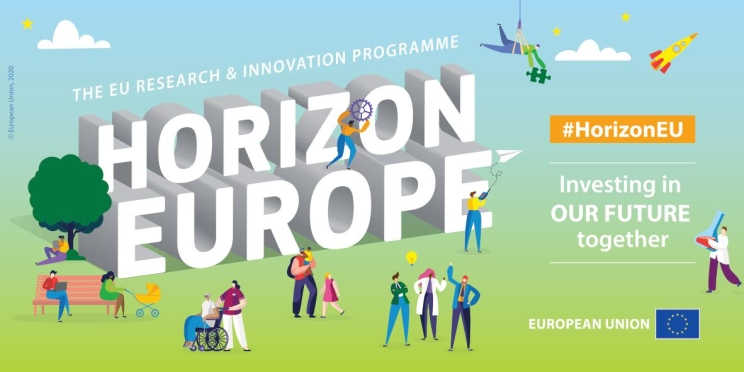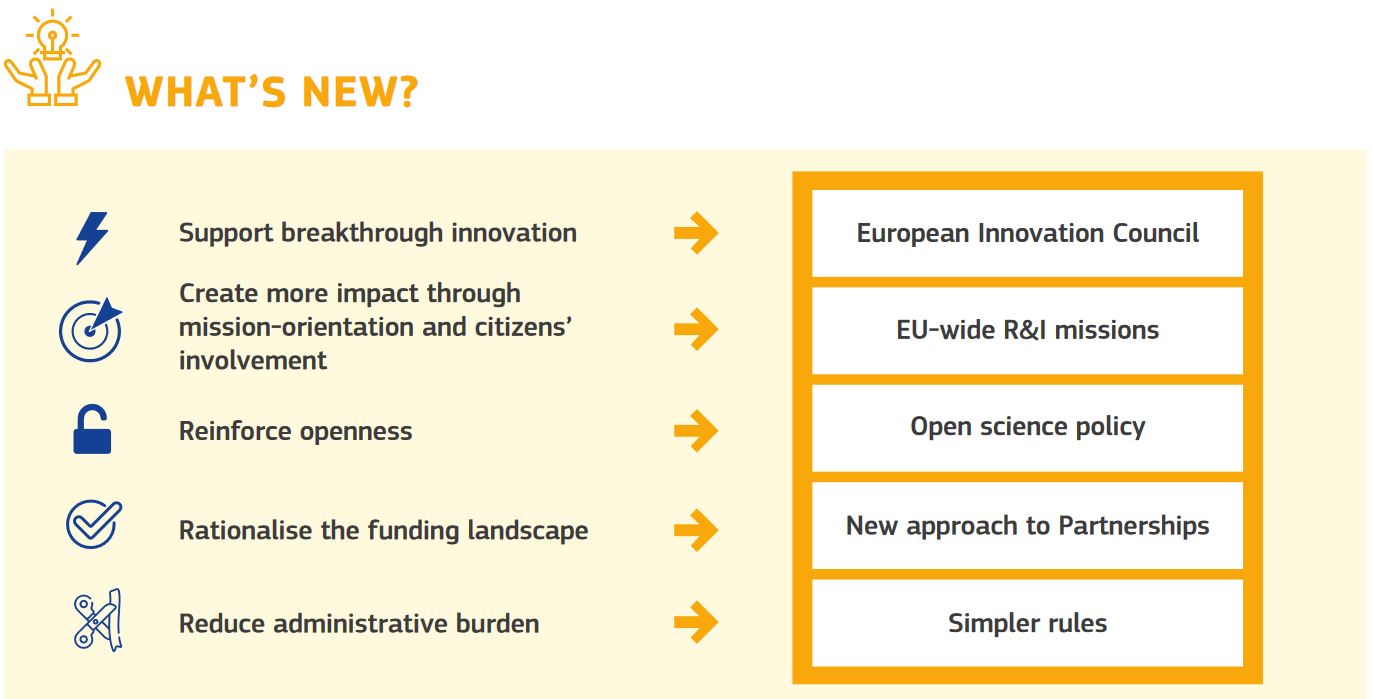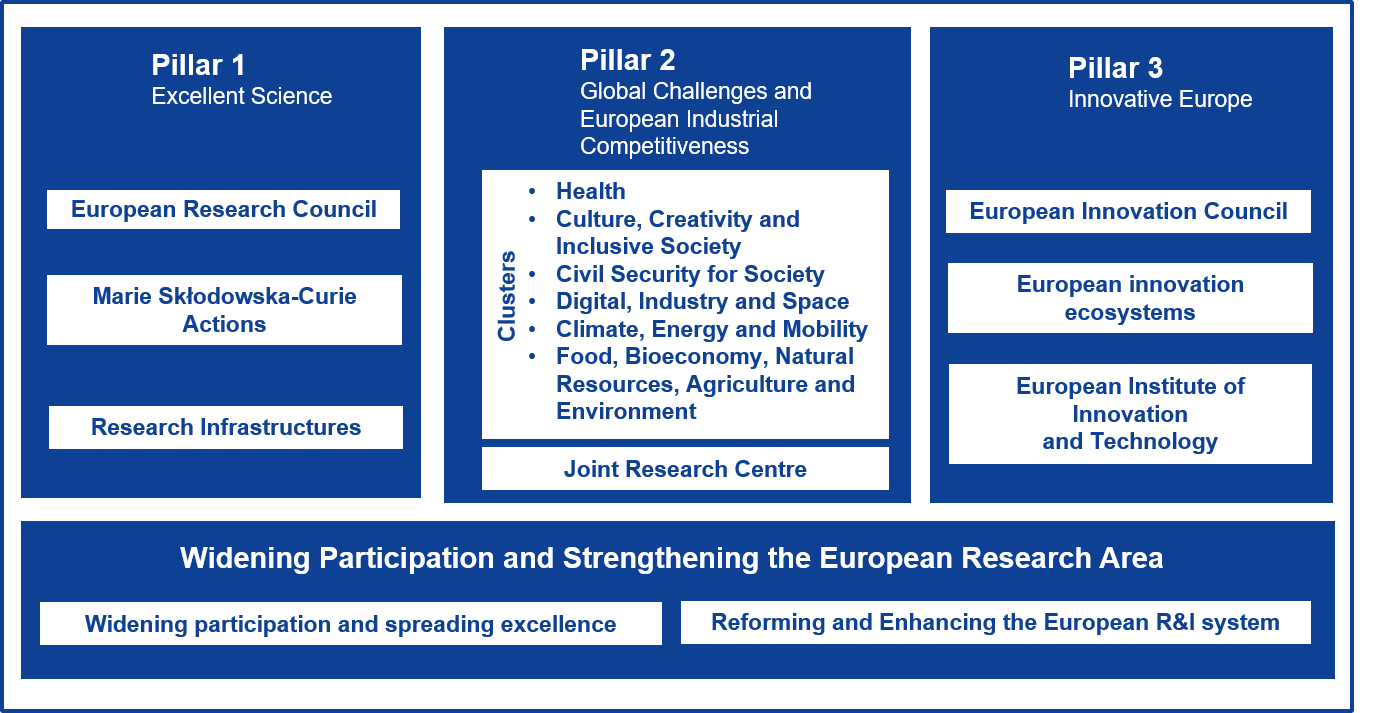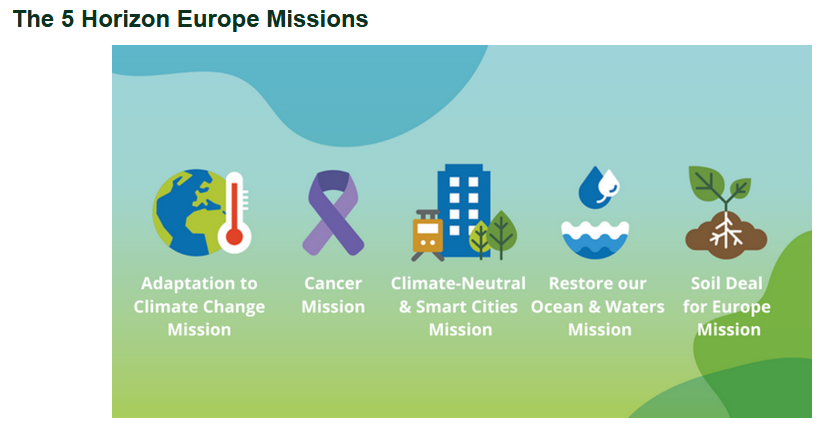
Horizon Europe - the EU's current Framework Programme for Research and Innovation (2021-2027)

1) Budget & objectives
With a budget of 95.5 billion euros, Horizon Europe is the EU's most ambitious research and innovation programme to date – and the largest funding programme of its kind worldwide. It covers the period 2021 to 2027 and builds on the success of its predecessor, Horizon 2020.
Horizon Europe focuses on continuity: the proven three pillars from Horizon 2020 remain in place. Excellence remains the benchmark.
What is new is that the European Innovation Council (EIC) has been institutionalised. In addition, Horizon Europe introduces a ‘strategic planning process’ and ‘missions’ for the first time.
This ninth framework programme for research and innovation aims to strengthen Europe's competitiveness and promote cooperation between science and industry within Europe in such a way that new and innovative solutions to the most important societal challenges facing the EU can be developed.
Horizon Europe aims to make Europe as a whole greener and more digital (see also Guiding principles).
2) Structure
The EU framework programme is based on three pillars:
- Scientific excellence
- Global challenges and industrial competitiveness
- Innovative Europe
The three pillars at a glance:
Pillar I: Excellent Science
With the first pillar, the European Commission aims to foster excellence in basic and pioneering research. The strong bottom-up character will continue to be maintained here and the focus will be on scientific excellence and strengthening the EU science base. For example, the European Commission aims to train talented scientists in the EU and tie them to the European Research Area (ERA).
Pillar II: Global challenges and European industrial competitiveness
This pillar aims to take account of the EU's industrial and socio-political objectives. The second pillar of Horizon Europe aims to make a particular contribution to addressing global challenges and to sustainable development.
Pillar II comprises six thematic clusters in Horizon Europe:
- Health;
- Culture, creativity and inclusive society;
- Civil security for society;
- Digital, industry and space;
- Climate, energy and mobility;
- Food, bioeconomy, natural resources, agriculture and the environment.
Pillar II is also where the European Commission's Joint Research Centre (JRC) can be found.
Pillar III: Innovative Europe
Pillar III instruments promote innovation of all kinds, from technological development, demonstration and knowledge transfer through to market launch.
- The European Innovation Council (EIC) is intended to serve as a one-stop shop that supports promising technologies with great potential through flexible grants and mixed financing. The EIC includes four complementary funding instruments covering the entire innovation cycle: EIC Pathfinder, EIC Transition, EIC Accelerator, und EIC STEP-Scale-up
- European innovation ecosystems bundle measures to exploit innovation potential between science and industry
- The European Institute of Innovation and Technology (EIT) and its Knowledge and Innovation Communities (KICs) aim to provide cross-stakeholder solutions to global challenges.
Widening participation and strengthening the European Research Area
This part of the programme includes measures aimed at increasing the participation of Member States with a lower level of research and innovation ("widening" countries) in Horizon Europe while at the same time supporting the strengthening and reform of the European research and innovation system as a whole.
3) NEW in Horizon Europe

Source: European Commission
- Strategic programming for greater planning security - “Strategic plan 2025-2027”
- The "missions" format is one of Horizon Europe's major innovations. Within the missions, the European Commission aims to address important societal challenges such as cancer and climate change through ambitious but realistic research and innovation activities. They enhance the impact of EU-funded research and innovation by mobilising investment and EU-wide efforts for measurable and time-bound targets on issues that particularly affect citizens' daily lives.
There are five specific missions (Horizon Europe Missions):
- Adaptation to Climate Change;
(Video: EU Mission - Adaptation to Climate Change) - Cancer;
(Video: EU Mission - Cancer) - Restore our Ocean and Waters;
(Video: EU Mission - Restore our Ocean and Waters) - Climate-Neutral and Smart Cities;
(Video: EU Mission - Climate-Neutral and Smart Cities) - A Soil Deal for Europe
(Video: EU Mission - A Soil Deal for Europe).
- Six thematic clusters: The two pillars of Horizon 2020 "Industrial Leadership" and "Societal Challenges" have been grouped into six thematic clusters.
- Restructured European Partnerships: The European Partnerships instrument have been simplified and the number reduced (from approx. 120 to approx. 50 partnerships).
- The European Innovation Council (EIC): Has been established as a one-stop shop to support breakthrough innovation.
- Stronger synergies with other EU programmes.






